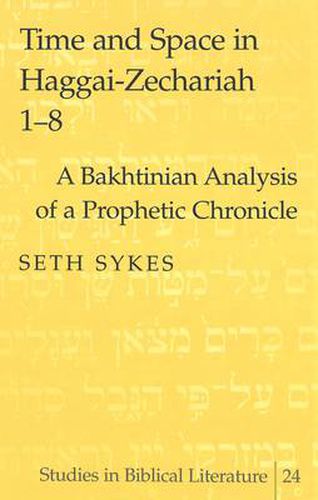Readings Newsletter
Become a Readings Member to make your shopping experience even easier.
Sign in or sign up for free!
You’re not far away from qualifying for FREE standard shipping within Australia
You’ve qualified for FREE standard shipping within Australia
The cart is loading…






In recent years, biblical scholars have begun to apply the literary theories of Mikhail Bakhtin to their study of biblical texts. This study offers a Bakhtinian analysis of Haggai-Zechariah 1-8. Using Bakhtin’s distinctive understanding of genre as a textual embodiment of a worldview, this study analyzes how Haggai-Zechariah 1-8 transforms the generic worldview of the chronicles. A Bakhtinian literary analysis also provides insights on the socio-historical context and socio-political function of the text. As a prophetic transformation of the chronistic genre, Haggai-Zechariah 1-8 critiques the ideology of the chronicles. Instead of offering an ideological defense of Persian imperial policy in post-exilic Judah, Haggai-Zechariah 1-8 subverts the historical reality of Persian imperial rule by depicting a utopian vision of Yahweh’s universal rule.
$9.00 standard shipping within Australia
FREE standard shipping within Australia for orders over $100.00
Express & International shipping calculated at checkout
In recent years, biblical scholars have begun to apply the literary theories of Mikhail Bakhtin to their study of biblical texts. This study offers a Bakhtinian analysis of Haggai-Zechariah 1-8. Using Bakhtin’s distinctive understanding of genre as a textual embodiment of a worldview, this study analyzes how Haggai-Zechariah 1-8 transforms the generic worldview of the chronicles. A Bakhtinian literary analysis also provides insights on the socio-historical context and socio-political function of the text. As a prophetic transformation of the chronistic genre, Haggai-Zechariah 1-8 critiques the ideology of the chronicles. Instead of offering an ideological defense of Persian imperial policy in post-exilic Judah, Haggai-Zechariah 1-8 subverts the historical reality of Persian imperial rule by depicting a utopian vision of Yahweh’s universal rule.